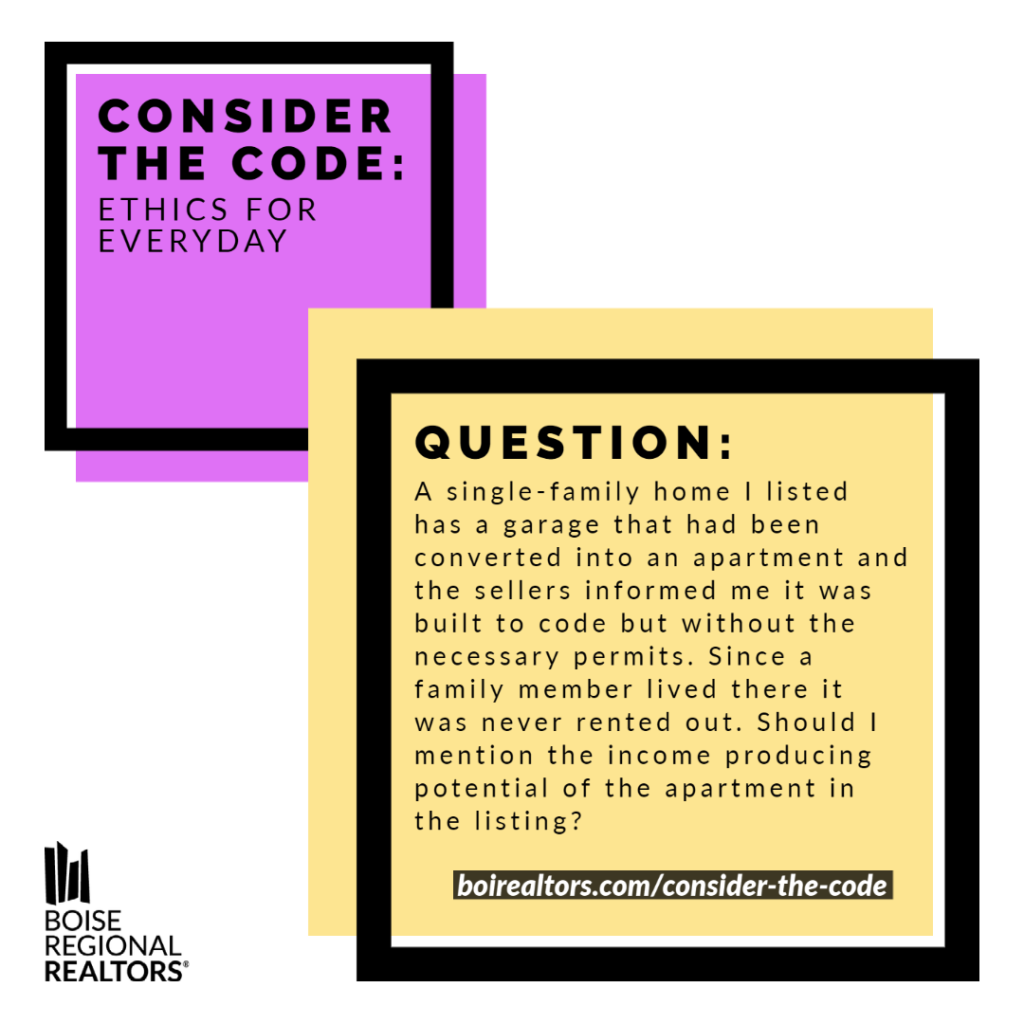Consider the Code: Ethics for Everyday
NAR’s long-standing Code of Ethics provides consistent standards, guidelines, and language, which ensures REALTORS® conduct business with integrity. The Code is more important than ever when serving your clients and differentiating yourself as a professional. Consider the Code, Standards of Practice, and Case Interpretations to help guide your business decisions.
Question:
A single-family home I listed has a garage that had been converted into an apartment and the sellers informed me it was built to code but without the necessary permits. Since a family member lived there it was never rented out. Should I mention the income producing potential of the apartment in the listing?
What does the Code say?
- Article 2: REALTORS® shall avoid exaggeration, misrepresentation, or concealment of pertinent facts relating to the property or the transaction.
Answer:
No, as it could be a violation of the REALTOR® Code of Ethics. According to Case Interpretation #2-19 and Article 2, showing a single family home as having income-producing potential from an upstairs apartment which had never been rented is a misrepresentation. Instead, disclose the fact that proper permits were not pulled when the garage was converted, and the new homeowner would need to work with local government agencies to determine whether the apartment could be rented, or encourage your seller to go through that process so the property could be marketed as having income producing potential.
Other considerations:
Beyond your ethical duties as a REALTOR®, IMLS subscribers are subject to the rules and regulations of the service, which specifies in Section 16.24 that:
MLS Participants shall present a true picture in their advertising and representations to the public, including Internet content posted, and the URLs and domain names they use, and Participants may not: Engage in deceptive or unauthorized framing of real estate brokerage websites; manipulate (e.g., presenting content developed by others) listing content in any way that produces a deceptive or misleading result; deceptively use metatags, keywords or other devices/methods to direct, drive, or divert Internet traffic, present content developed by others without either attribution or without permission; or otherwise mislead consumers.
While the IMLS rules and regulations focus more on the technology aspect, there is a clear directive to not mislead listing content.
Even if it isn’t your intent to mislead, it’s possible you’ll do so if you don’t disclose the fact that building permits were not pulled when the conversion was made. Ultimately, it’s better to play it safe and disclose what you know and avoid making any assumptions when advertising.






